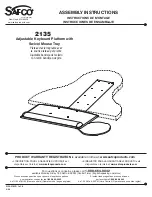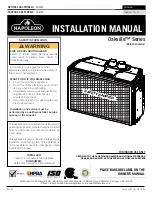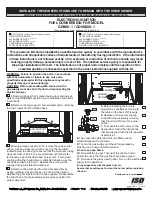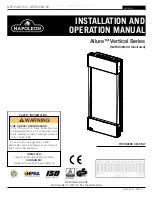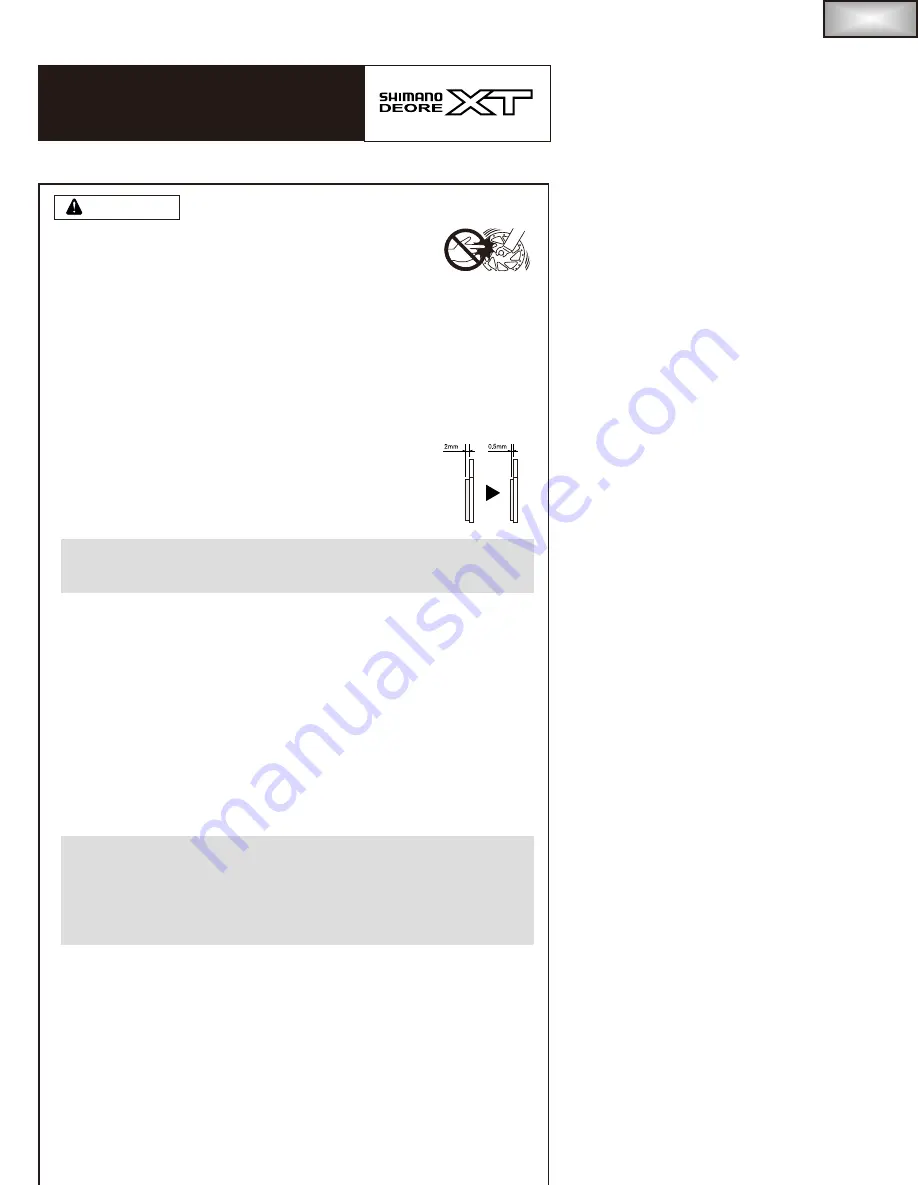
General Safety Information
Technical Service Instructions
SI-8A30C
Disc Brake System
( For Cross-Country )
WARNING
• Please use extra caution to keep your fingers away from the rotating
disc brake rotor during installing or servicing the wheel. The rotor is
sharp enough to inflict severe injury to your fingers if caught within the
openings of moving rotor.
• The calipers and rotor will become hot when the brakes are operated, so do not touch
them while riding or immediately after dismounting from the bicycle, otherwise you may
get burned. Check that the brake components have cooled down sufficiently before
attempting to adjust the brakes.
• The required braking distance will be longer during wet weather.
Reduce your speed and apply the brakes early and gently.
• If the road surface is wet, the tires will skid more easily. If the tires skid, you may fall off
the bicycle. To avoid this, reduce your speed and apply the brakes early and gently.
• Always make sure that the front and rear brakes are working correctly before you ride
the bicycle.
• Be careful not to allow any oil or grease to get onto the rotor and brake pads, otherwise
the brakes may not work correctly.
• If any oil or grease do get on the pads, you should replace the pads.
If any oil or grease gets on the rotor, you should clean the rotor. If
this is not done, the brakes may not work correctly.
• Before riding the bicycle, check that the pad thicknesses are 0.5 mm
or more.
• Vapor lock may occur if the brakes are applied continuously. To
relieve this condition, momentarily release the lever.
• Use only genuine Shimano mineral oil. If other types of oil are used, it may cause
problems with brake operation, and cause the system to be unuseable.
• Be sure to use only oil from a freshly-opened container, and do not re-use oil which has
been drained from the bleed nipple. Old oil or already-used oil may contain water which
could cause vapor lock in the brake system.
• Be careful not to let water or air bubbles to get into the brake system, otherwise vapor
lock may occur. Be particularly careful when removing the cover of the reservoir tank.
• When turning the bicycle upside down or on its side the brake system may have some
air bubbles inside the reservoir tank which are still there when the reservoir tank cover is
replaced, or which accumulate in various parts of the brake system when it is used for
long periods. The M765 disc brake system is not designed to be turned upside down. If
the bicycle is turned upside down or on its side, the air bubbles inside the reservoir tank
may move in the direction of the calipers. If the bicycle is ridden in this condition, there is
the danger that the brakes may not operate and a serious accident could occur.
If the bicycle has been turned upside down or on its side, be sure to operate the brake
lever a few times to check that the brakes operate normally before riding the bicycle. If
the brakes do not operate normally, adjust them by the following procedure.
• If fluid leaks occur, immediately stop using the brakes and carry out the appropriate
repairs. If you continue riding the bicycle while fluid is leaking, there is the danger that
the brakes may suddenly stop working.
• Check that the quick release lever is on the right side (the opposite side to the rotor). If
the quick release lever is on the same side as the rotor, there is the danger that it may
interfere with the rotor, so check that it does not interfere.
• It is important to completely understand the operation of your bicycle's brake system.
Improper use of your bicycle's brake system may result in a loss of control or an
accident, which could lead to severe injury. Because each bicycle may handle differently,
be sure to learn the proper braking technique (including brake lever pressure and bicycle
control characteristics) and operation of your bicycle. This can be done by consulting
your professional bicycle dealer and the bicycle's owners manual, and by practicing your
riding and braking technique.
• The M765 disc brakes are designed for optimum performance when used in combination
Vapor lock is a phenomenon in which the oil inside the brake system becomes
heated, which causes any water or air bubbles inside the brake system to expand.
This can then result in a sudden increase in the brake lever stroke.
< If brake operation is sluggish when the lever is depressed >
Set the brake lever so that it is parallel to the ground, and then gently depress the
brake lever several times and wait for the bubbles to return to the reservoir tank. It is
recommended that you then remove the reservoir tank cover and fill the reservoir
tank with mineral oil until no bubbles remain.
If the brakes still operate sluggishly, bleed the air from the brake system.
(Refer to "Adding the mineral oil and bleeding air".)
t










